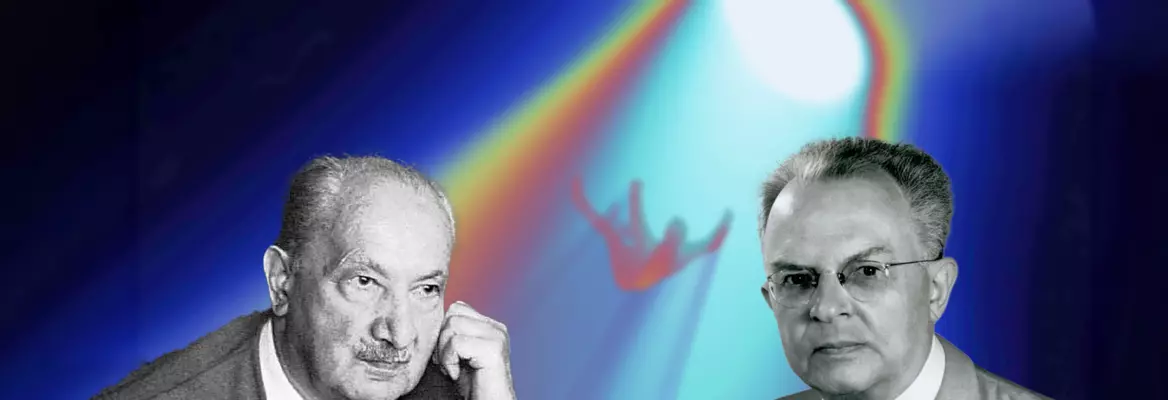There has been much ado about nothingness amongst philosophers and mystics alike. Heidegger and Carnap famously argued fiercely about whether the ‘nothing nothings’ or whether this is meaningless, illogical, hogwash. Carnap though, in his later work, moved towards Heidegger’s perspective, and placed ‘the nothing’ beyond the clutches of logic. The ground of Being may well be a contradiction, argues Graham Priest.
In Being and Nothingness, Jean-Paul Sartre tells us a story.1 He has arranged to meet Pierre in a bar at 16.00. Pierre is always punctual. Jean-Paul arrives late. He enters the bar; Pierre is not there. At once Jean-Paul experiences his absence. He does not have to reason: ‘The things in the bar are: a table, a chair, Simone... Pierre is not a table; Pierre is not a chair; Pierre in not Simone;... Ergo Pierre is not in the bar.’ The absence of Pierre is immediate. He has a direct phenomenological awareness of an absence.
Or again: I visited my old family home immediately after the death of my mother. The place was exactly the same as it always was. But now there was nobody there. She was absent; and her absence was palpable.
Perhaps most of us have experienced this kind of absence. But the absences in question here are absences of particular things, Pierre and my mother. There is also an absolute absence: the absence of every thing: nothing(ness). Can one experience this?
Yes, according Martin Heidegger. His inaugural lecture at the University of Freiburg in 1929, discusses nothing(ness) at length, and he avers:2
Does such an attunement, in which man is brought before the nothing itself, occur in human existence?
This can and does occur, although rarely enough and only for a moment, in the mood of anxiety.
The first thing to note about this quotation is the unhappy translation. ‘The nothing’ barely makes sense in English. In German, when an abstract noun is used it is standard for it to come with the definite article (‘the’). This is not the case in English. The translation should simply be nothing, or maybe nothingness (to emphasize that this is being used as a noun-phrase—see below). The second thing to note is that what Heidegger means by ‘anxiety’ is not what the reader is first likely to think. It is not a feeling of anxiousness about some actual or possible event. It is a mood, an experience, which is directed at no thing in particular. Indeed all objects “slip away” and one is left with their ground—nothingness. Indeed, their “standing out” against this is what makes them objects:3
In the clear night of the nothing of anxiety the original openness of beings as such arises: they are beings—and not nothing. But this ‘and not nothing’ we add in our talk is not some kind of appended clarication. Rather it makes possible in advance the revelation of beings in general.
The similarity between Heidegger’s experience of anxiety and the Zen experience of satori has been noted by many.4
___
And just as the Eiffel Tower and Sherlock Holmes were phenomenologically present to you, so has nothingness been. It has been the object of your thought and, as such, experienced.
___





















Join the conversation